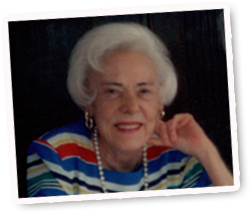
- Fellowship year:2016-2017
- University: New York University
- Dissertation Topic/Category: United States
- Dissertation Title: The Shtarkers of Progressive Era New York; Labor, Crime, and Capitalism in an Era of Mass Migration, 1890-1930
Over the Gilded Age and Progressive Era (1877-1920) violent industrial conflicts became a routine feature of American life. In New York City's garment industry, employer violence against predominantly immigrant-Jewish workers began in 1909 with a series of general strikes. In addition to using police and courts to thwart union organizing, clothing firms employed "shtarkers." This Yiddish term meaning "strongman" came to refer to criminal operators employed by either industrialists or unions to perform violence during labor conflicts. Two officers of the International Ladies Garment Workers Union (ILGWU) employed the most famous shtarker of the period, "Dopey Benny Fein, in an effort to counter factory owner's brutal tactics. But once embedded in the ILGWU, Fein developed and mastered one of the most intractable forms of urban crime in modern American cities; the industrial labor racket. Shtarkers illustrated how the mass migration of European Jewry to New York- which included both immigrant garment entrepreneurs as well as activists in the Yiddish labor movement- encountered and adapted to the class-based violence endemic to American society during this period.
Shtarkers posed a major problem for the Progressive Movement in New York Cityt. Progressive policy-makers inititated reforms in the city's industries aimed at reducing outbreaks of physical confrontation between workers and management. However, shtarkers presented a fundamental obstacle to this objective, and especially Mayor John P. Mitchel's ambition to de-commodify violence. Mitchel envisioned a professionalized body of law enforcement that would become the sole arbiter of legitimate violence in New York's streets and workshops, dispelling the gangs that informally policed working-class neighborhoods. Along with Mayor Mitchel, a host of ethnic organizations, such as the Jewish Kehillah founded in 1908 by Rabbi Judah Magnes, also sought to diminish the influence of shtarkers and other immigrant criminal enterprises. However, these initiatives failed to curtail the authority of shtarkers in the garment industry, which only grew over the 1920s and '30s. Shtarkers therefore reveal the limitations of urban Progressivism and the challenges the Progressive Movement faced in improving conditions for working-class Americans.
